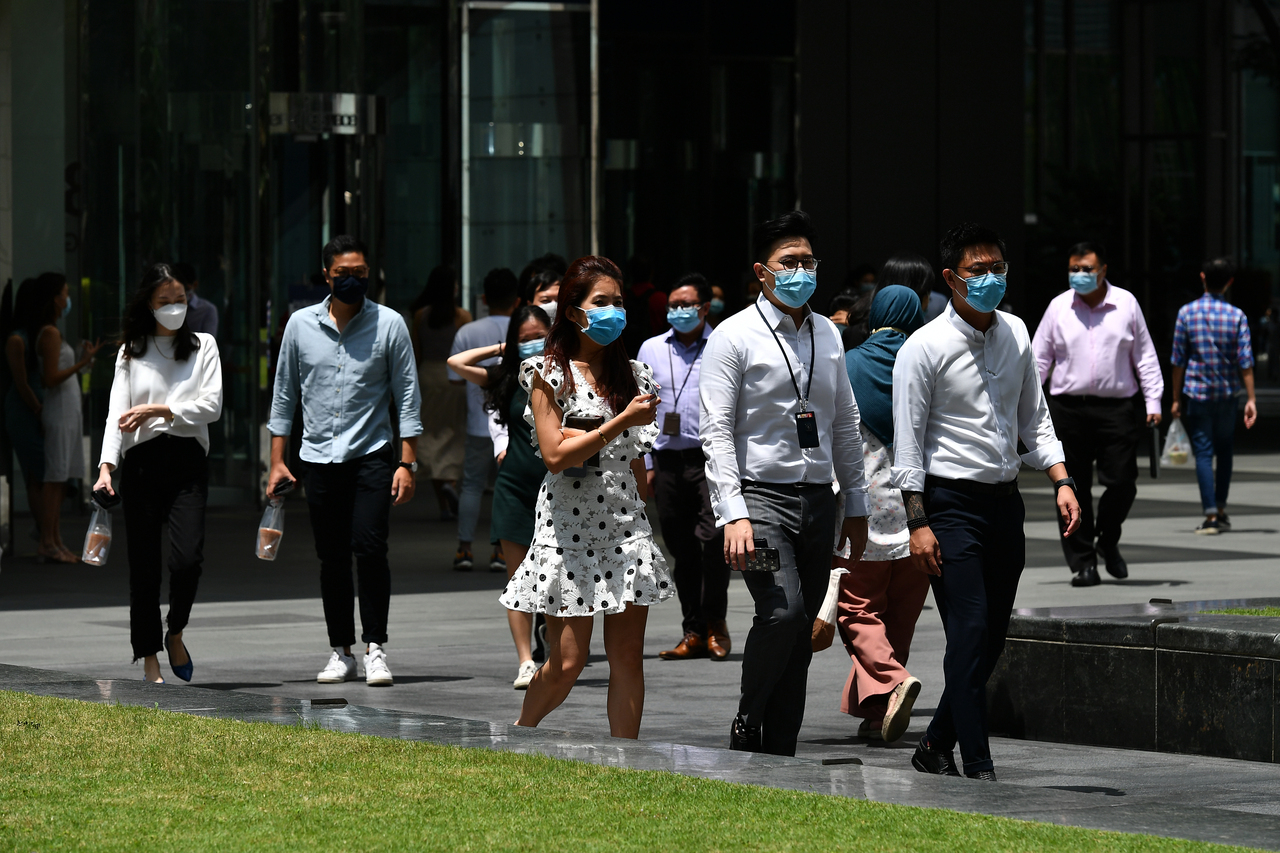Firms should invest in local talent to build capabilities for long-term competitiveness, say MPs
Sign up now: Get ST's newsletters delivered to your inbox

Investing in Singaporeans and in the skills that matter will be key to helping them thrive.
ST PHOTO: LIM YAOHUI
SINGAPORE - Companies should invest in Singaporean graduates and talents to help build the capabilities and expertise required for the country's long-term competitiveness, MPs said on Wednesday (Feb 24).
Investing in Singaporeans and in the skills that matter in the changing economy will be key to helping workers thrive, they said.
Suggesting that this could help address the tech talent crunch, Nominated MP Janet Ang urged the business community to work with institutions of higher learning to ensure a ready pipeline of workers with the right skillsets - even if they can hire foreign developers at equivalent salaries.
"I believe there is opportunity for more collaboration within and across sectors to uplift the labour ecosystem, as having a larger pool of skilled labour would benefit businesses in the long run," said Ms Ang, who is a council member of the Singapore Business Federation.
Singapore workers are confident, determined and ready to work hard, and firms should invest in them and give them opportunities to flourish, she added.
Agreeing, Ms Jessica Tan (East Coast GRC) said that beyond Government grants and support, such as through the SGUnited Traineeship Programme to help fresh graduates from universities and polytechnics boost their employability, the whole work ecosystem needs to step up to shore up Singapore's capabilities.
"We need to identify the capabilities required and build the depth of expertise and knowledge for long-term resilience and competitiveness. These capabilities include technical, functional and leadership skills," she said.
Ms Foo Mee Har (West Coast GRC) raised similar points, noting that many businesses have thrived by cultivating a strong local team which is committed to the long-term success of their employers' business.
"There is no better time to build a strong Singaporean core for long-term sustainability," she said.
Ms Ang called for fair opportunities for Singapore workers, to enable employees of today to enjoy the same benefits that she and others had in the past - prominent private sector leaders like Mr Koh Boon Hwee and Ms Teo Lay Lim were trained and developed in foreign firms, by foreign bosses.
"Skills transfer and knowledge transfer as well as leadership development are some of the key values in successful partnerships between the MNCs (multi-national corporations) and Singapore," she said, adding that this conversation needs to be restarted by the Economic Development Board and business leaders.
Long-term job prospects
Meanwhile, Ms Tan emphasised that attention needs to be paid to the conversions to full employment for those undergoing traineeships and attachments as Singapore opens up its economy.
"Workers need to not only get the opportunity to learn, but they also need... deeper, long-term commitments (from employers) to develop and build the required expertise," she added.
On the same point, Ms Nadia Samdin (Ang Mo Kio GRC) spoke about the challenges facing fresh graduates in the job market.
She noted how the annual employment survey conducted by the autonomous universities found that just 69.8 per cent of fresh graduates found permanent full-time employment six months after their final exams in 2020. This was significantly lower than the 81.7 per cent in 2019. Those in part-time and temporary work has also tripled, compared with the previous cohort.
While the likes of the SGUnited Traineeship Programme provide opportunities for new entrants into the workforce, Ms Nadia urged greater consideration for their long-term employment prospects.
"In the medium to longer run, grants do not translate to salaries and some may turn to temporary gig jobs to make ends meet and get stuck where they don't want to be," she said.


